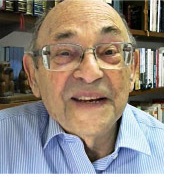by Neville Teller
Commitment to the two-state solution was voiced by four parties during US President Joe Biden’s recent visit to the Middle East – by Biden himself, by Palestinain Authority president Mahmoud Abbas, by Saudi Arabia’s leadership, and by Israel’s interim prime minister, Yair Lapid.
Greeting Biden in Bethlehem on 15 July, Abbas said: “Mr. President, we look forward to the efforts of your administration…to stop unilateral actions that undermine the two-state solution.”
Will you offer us a hand? Every gift, regardless of size, fuels our future.
Your critical contribution enables us to maintain our independence from shareholders or wealthy owners, allowing us to keep up reporting without bias. It means we can continue to make Jewish Business News available to everyone.
You can support us for as little as $1 via PayPal at office@jewishbusinessnews.com.
Thank you.
In response, Biden declared: “the Palestinian people deserve a state of their own that’s independent, sovereign, viable and contiguous. Two states for two peoples…living side by side in peace and security”.
In a press conference just prior to Biden’s departure for Saudi Arabia, Lapid said: “About the two-state solution, I haven’t changed my position. A two-state solution is a guarantee for a strong democratic state of Israel with a Jewish majority.”
Biden’s meetings with Saudi King Salman and Crown Prince Mohammed bin Salman (MBS) resulted in a joint communique in which both sides backed the two-state solution as the only way to resolve the Israel-Palestinian conflict.
The Saudi position was later reiterated by its foreign minister, Adel al-Jubeir. Jubeir declared in a CNN interview that despite Saudi opening its air space to all commercial flights, which would include Israel, full normalization between Saudi and Israel was dependent on the establishment of a sovereign Palestinian state within 1967 boundaries including East Jerusalem.
The Saudi stance on normalization has been consistent ever since the signing of the Abraham Accords. In his TV interview Jubeir referred to another factor: “We have said that Saudi Arabia supports the Arab Peace Initiative. In fact, we offered it.”. It was King Salman’s half-brother (and predecessor on the throne), then-Crown Prince Abdullah, who conceived and proposed the 2002 Arab Peace Initiative. Endorsed on three occasions by the Arab League, it declares that given a two-state solution to the Israel-Palestine dispute and a just resolution of the Palestinian refugee issue, full normalization of relations between the Muslim world and Israel would follow .
And yet, in the 55 years since 1967, in a series of peace negotiations and in other ways such as the Trump “Peace to Prosperity” plan, the Palestinians have been offered a sovereign state alongside Israel. Time and again it has been rejected.
The reason is not hard to discern. Quite simply, a two-state solution is not what the Palestinian cause is all about. Much, perhaps the major part, of Palestinian opinion shares the view that Israel is illegally occupying Palestinian land that it has conquered and colonized, and that the area “from the river to the sea”, that is from the Jordan to the Mediterranean, is Palestinian, and the state of Israel should be ejected from it. The Hamas and PLO charters and the Fatah constitution are at one on this ultimate objective, and indeed on the need to take up arms in support of it. It is on the tactics to achieve it that the two main Palestinian parties differ, and that disagreement is so basic that it has ensured that Hamas and Fatah have remained at each other’s throats for decades. All attempts at reconciliation have proved fruitless.
Hamas believes that the only effective way to achieve the desired outcome is through continual conflict and terrorism. Any pause in the battle must be temporary and provide a tactical advantage. The Fatah-dominated Palestinian Authority (PA), however, continues to follow the tactical path set by Arafat. At the Oslo peace discussions in 1993 and 1995 Arafat – rock solid in his determination to overthrow Israel eventually – decided to woo world opinion by overtly supporting the two-state solution.
Not long after the conclusion of Oslo 2, he held what was intended to be a secret meeting with Arab leaders in a Stockholm hotel. To his embarrassment, both his tactical plans and his strategic objectives were leaked to the Norwegian daily, Dagen. Among much else, he told Arab leaders that the PLO intends: “…to eliminate the state of Israel and establish a purely Palestinian state.”
Following Arafat’s death the PA, and its new leader Mahmoud Abbas, took their lead from his prospectus. A determined effort was made to win over world opinion to the idea of establishing a sovereign Palestine within the boundaries that existed before the 6-Day War in 1967 – that is, in the West Bank and East Jerusalem, and the Gaza Strip. But pressing for a Palestinian state within those boundaries inevitably meant acknowledging that a sovereign Israel existed outside them. This is the pill that Hamas and like-minded rejectionists find impossible to swallow. They refuse to recognize that Israel has any right at all to exist on “their” land, not even as a step toward its eventual destruction.
None of this is secret, so how is it that a vast swath of world opinion supports a two-state solution in the full knowledge that this outcome is not what the Palestinian leadership or people as a whole desire? Global opinion refuses to acknowledge the elephant in the room. Ever since 2007, when Hamas seized power in the Gaza Strip, the Palestinian people have been split in two, and at least half would never subscribe to a two-state solution. Indeed, any Palestinian leader signing such a deal would be denounced as a traitor to the Palestinian cause.
Saudi Arabia advocates it strongly as a prerequisite for normalization within the context of the Arab Peace Initiative, but Saudi leaders fail to take into account that the Initiative was drafted well before Hamas gained control of Gaza. The situation in 2022 is radically different from what it was in 2002.
It is also odd that so little thought has been given to what sort of two-state solution, acknowledging Israel’s right to exist, could ever be signed in current circumstances. Since Hamas would never participate or be a signatory, Gaza would be excluded from the arrangement. What sort of sovereign Palestine would it be, shorn of half the Palestinian population? In short has world opinion ever faced up to the awkward truth that in order to achieve a genuine two-state solution, the Hamas organization must first be disempowered?
To avoid a future of constant conflict, truly creative thinking is called for. In 2018, when the Trump peace proposals were being drawn up, Abbas was asked his views on a federation. He is on record as favoring a three-way confederation of Jordan, Israel and a sovereign Palestine. In a confederation, states retain their sovereignty but agree to collaborate on certain security, defense, economic or administrative matters, appointing a joint central authority to coordinate the arrangement. The idea of a three-state confederation – a mini EU – covering the whole of what was originally Mandate Palestine might open a hitherto unexplored path leading away from unending Israel-Palestinian discord.
 The writer is a Middle East correspondent for Eurasia Review. His latest book is: “Trump and the Holy Land: 2016-2020”. Follow him at: www.a-mid-east-journal.blogspot.com
The writer is a Middle East correspondent for Eurasia Review. His latest book is: “Trump and the Holy Land: 2016-2020”. Follow him at: www.a-mid-east-journal.blogspot.com




